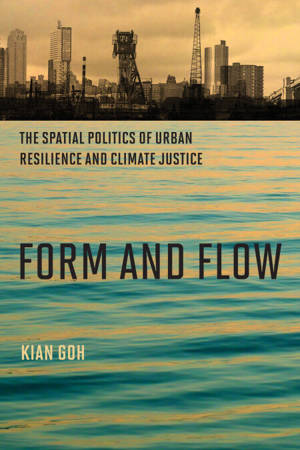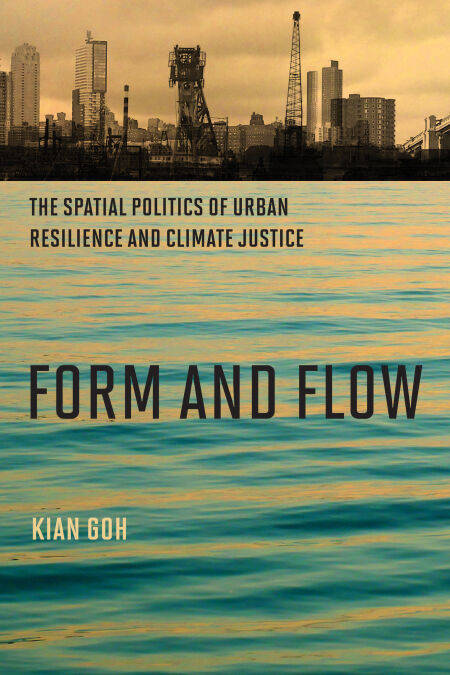
Bedankt voor het vertrouwen het afgelopen jaar! Om jou te bedanken bieden we GRATIS verzending (in België) aan op alles gedurende de hele maand januari.
- Afhalen na 1 uur in een winkel met voorraad
- In januari gratis thuislevering in België
- Ruim aanbod met 7 miljoen producten
Bedankt voor het vertrouwen het afgelopen jaar! Om jou te bedanken bieden we GRATIS verzending (in België) aan op alles gedurende de hele maand januari.
- Afhalen na 1 uur in een winkel met voorraad
- In januari gratis thuislevering in België
- Ruim aanbod met 7 miljoen producten
Zoeken
€ 34,49
+ 34 punten
Omschrijving
An examination of urban climate change response strategies and the resistance to them by grassroots activists and social movements.
Cities around the world are formulating plans to respond to climate change and adapt to its impact. Often, marginalized urban residents resist these plans, offering “counterplans” to protest unjust and exclusionary actions. In this book, Kian Goh examines climate change response strategies in three cities—New York, Jakarta, and Rotterdam—and the mobilization of community groups to fight the perceived injustices and oversights of these plans. Looking through the lenses of urban design and socioecological spatial politics, Goh reveals how contested visions of the future city are produced and gain power.
Goh describes, on the one hand, a growing global network of urban environmental planning organizations intertwined with capitalist urban development, and, on the other, social movements that themselves often harness the power of networks. She explores such initiatives as Rebuild By Design in New York, the Giant Sea Wall plan in Jakarta, and Rotterdam Climate Proof, and discovers competing narratives, including community resiliency in Brooklyn and grassroots activism in the informal “kampungs” of Jakarta. Drawing on participatory fieldwork and her own background in architecture and urban design, Goh offers both theoretical explanations and practical planning and design strategies. She reframes the critical concerns of urban climate change responses, presenting a sociospatial typology of urban adaptation and considering the notion of a “just” resilience. Finally, she proposes a theoretical framework for designing equitable and just urban climate futures.
Cities around the world are formulating plans to respond to climate change and adapt to its impact. Often, marginalized urban residents resist these plans, offering “counterplans” to protest unjust and exclusionary actions. In this book, Kian Goh examines climate change response strategies in three cities—New York, Jakarta, and Rotterdam—and the mobilization of community groups to fight the perceived injustices and oversights of these plans. Looking through the lenses of urban design and socioecological spatial politics, Goh reveals how contested visions of the future city are produced and gain power.
Goh describes, on the one hand, a growing global network of urban environmental planning organizations intertwined with capitalist urban development, and, on the other, social movements that themselves often harness the power of networks. She explores such initiatives as Rebuild By Design in New York, the Giant Sea Wall plan in Jakarta, and Rotterdam Climate Proof, and discovers competing narratives, including community resiliency in Brooklyn and grassroots activism in the informal “kampungs” of Jakarta. Drawing on participatory fieldwork and her own background in architecture and urban design, Goh offers both theoretical explanations and practical planning and design strategies. She reframes the critical concerns of urban climate change responses, presenting a sociospatial typology of urban adaptation and considering the notion of a “just” resilience. Finally, she proposes a theoretical framework for designing equitable and just urban climate futures.
Specificaties
Betrokkenen
- Auteur(s):
- Uitgeverij:
Inhoud
- Aantal bladzijden:
- 298
- Taal:
- Engels
- Reeks:
Eigenschappen
- Productcode (EAN):
- 9780262367059
- Verschijningsdatum:
- 16/08/2021
- Uitvoering:
- E-book
- Beveiligd met:
- Adobe DRM
- Formaat:
- ePub

Alleen bij Standaard Boekhandel
+ 34 punten op je klantenkaart van Standaard Boekhandel
Beoordelingen
We publiceren alleen reviews die voldoen aan de voorwaarden voor reviews. Bekijk onze voorwaarden voor reviews.









